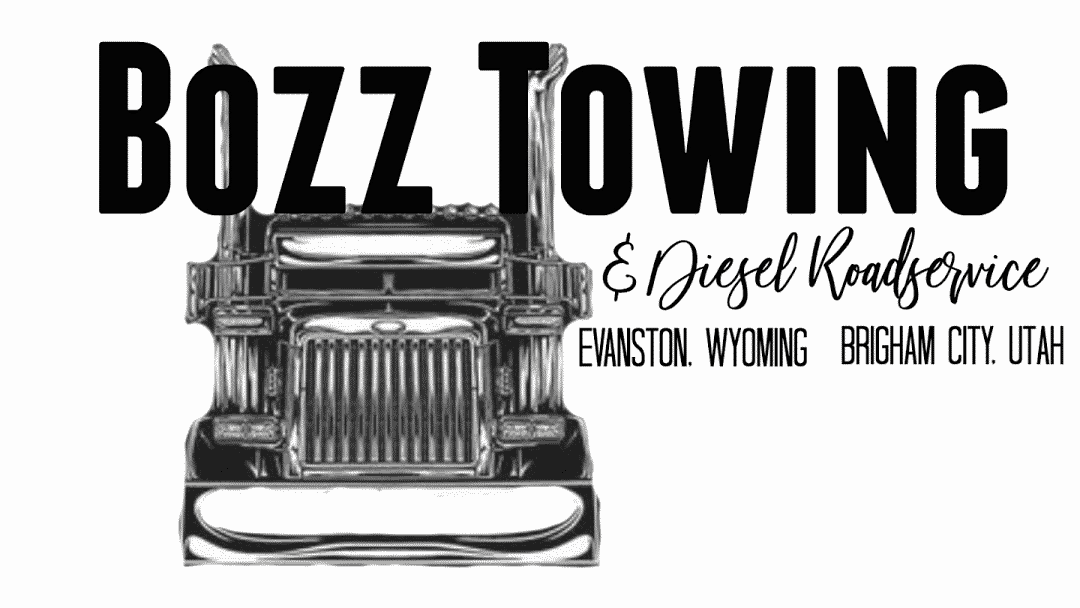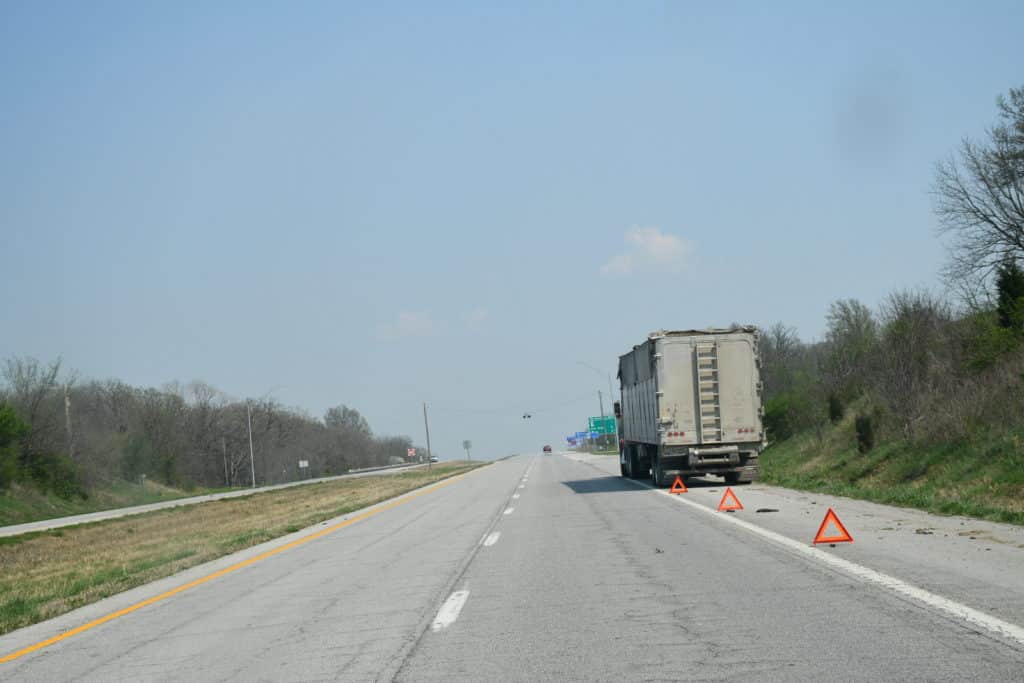Do you ever worry that your truck brakes are going out? When you’re driving a semi truck, it’s important to have brakes in good condition. Unfortunately, semi truck brake problems can occur without warning and cause a serious safety hazard. Do you know the signs to watch for? Do you know what to do if they fail?
In this post, we’ll discuss the symptoms of brake failure and what you should do if your truck experiences a brake malfunction. We’ll discuss the symptoms of brake failure and some tips on how to stay safe when your brakes go out.
What to Do if Your Semi Brakes Start to Fail
While you may hope it never happens to you, knowing what to do if your semi brakes begin to fail while driving is essential. Semi truck brake problems can happen to anyone at any time, so it’s best to prepare for whatever may come your way.
So, if you’re wondering how to safely slow down and stop a semi truck in an emergency, here are some tips:
The first thing you should do is try to stay calm. Remember that even though your brakes may not be working correctly, you still have some control over the vehicle. Next, you need to assess the situation and determine whether it’s safe to continue driving. If the road is clear and there are no obstacles in your path, you may have time to bring the truck to a halt. If so, there are a few ways you can do this:
- Use the emergency brake: If your semi truck has an emergency brake, you can use it to slowly bring the truck to a stop. Apply the brake gently, as applying it too forcefully could cause the truck to spin out of control.
- Downshift: If you have time, you can try downshifting to a lower gear. This will help slow the truck down and give you more control over it.
- Use the engine: If your semi truck has an automatic transmission, you can use the engine to slow the truck down. To do this, shift into low gear and let off the gas pedal. The engine will help to slow the truck down.
- Use the brakes: You can try using the brakes if you have time. However, you should be aware that semi truck brakes can overheat if used too much, so you should only use them sparingly.
If all else fails, look for a safe place to run the vehicle off the road.
There are generally three types of sites you can do this:
- Soft shoulders: These are areas where the ground is soft, such as grassy areas. Running off into a soft shoulder will help absorb some of the impact and reduce the risk of damage to your semi truck.
- Ditches: If there are no soft shoulders available, you can try to run the truck off into a ditch. This will help reduce the truck’s speed and minimize the risk of damage or injury.
- Runaway ramps: These are specially created ramps usually found on highways. Their design helps semi trucks slow down in an emergency.
Be sure to reduce your speed as much as possible before doing this. Likewise, prepare for a sudden stop when you finally come to a halt. Once you’ve brought the truck to a stop, turn on your hazard lights and set up warning signs to alert other drivers.
Read more: What to Do After a Big Rig Breakdown?
Using Emergency Semi Truck Ramps During Brake Emergencies
If you are ever in the unfortunate situation of a runaway truck, there is no need to panic. Many long, steep hills have these roadside emergency ramps.
To use one of these ramps:
- Drive your vehicle onto the ramp and allow the incline to bring your vehicle to a stop.
- Once you have come to a complete stop, engage your parking brake and put your vehicle in park.
- Then, exit your vehicle and move to a safe location.
Remember, these ramps are for use in an emergency, so do not use them for everyday driving. If you find yourself using one of these ramps, be sure to drive carefully and follow all posted signs and instructions.
After you’re safely off the road, you can assess the problem and decide whether you need to call for help. In many cases, brake failure is due to a simple problem that can be easily fixed, such as a loose brake pad. However, if you’re unsure of the cause of the problem or don’t feel comfortable trying to fix it yourself, it’s always best to call a tow truck or qualified mechanic.
Read more: What is a runaway truck ramp?
Watch Out for Signs of Brake Problems
There are a few different semi truck brake problems that can happen, but there are several common signs to look out for. Here are some of the most common semi truck brake problems and their symptoms:
- Air leaks: If there is an air leak in your system, it can cause the pressure to drop and make it difficult for the brakes to work properly. Symptoms of an air leak can include a hissing sound, a drop in air pressure, and brakes that feel spongy when applied.
- Worn brake pads: Brake pads wear down over time and need to be replaced regularly. If your brake pads are worn, it can cause the brakes to squeal or grind when you apply them.
- Misaligned brake shoes: If the brake shoes become misaligned, it can cause premature wear and damage to the brake drums. Symptoms of misaligned brake shoes include vibration when the brakes are applied and increased wear on the brake drums.
- Brake fade: This can happen when the brakes are used too much, and they start to overheat. When this happens, the brake pads can break down and lose efficacy. Symptoms of brake fade include a burning smell, smoke coming from the brakes, and brakes that feel soft when applied.
- Brake lock: This can happen when the brakes are applied too hard, and the calipers become stuck in the on position. This can cause the brakes to stay on even after you’ve released the pedal, leading to brake failure. Symptoms of brake lock include a burning smell, smoke coming from the brakes, and a stuck brake pedal.
- Damaged airline: Brakes can be damaged by a malfunctioning air system if certain parts of the truck’s airline are punctured, cracked, or broken.
- Faulty suspension: A semi truck’s suspension system helps to keep the brakes functioning properly. If there is a problem with the suspension, it can cause the brakes to wear down prematurely or not work as effectively. Symptoms of a faulty suspension include a bouncing ride, uneven tire wear, and abnormal brake wear.
- Bad compressor: The compressor handles pumping air into the semi truck’s braking system. If the compressor is not working properly, it can cause the brakes to fail. Symptoms of a bad compressor include an air pressure gauge that reads zero, a hissing sound, and brakes that feel spongy when applied.
If you experience any of these problems, it’s essential to pull over and stop driving as soon as possible. Driving with damaged or failing brakes can be extremely dangerous and lead to accidents.
Read more: Semi Truck Air Brakes: How Do Air Brakes Work + Maintenance
Get Regular Brake Maintenance and Inspections
Regular brake inspections and maintenance are essential to the safe operation of any vehicle. Brakes are one of the most critical safety features on a car, and they need to be in good working order at all times. Unfortunately, brakes can wear out over time, and they may not work as well as they should if they are not regularly inspected and maintained.
Without regular maintenance, brake pads and discs wear down over time, making it difficult for the brakes to stop the car effectively. In addition, brake fluid can leak or become contaminated, leading to brake failure.
It’s important to have your brakes checked regularly by a qualified mechanic. They will be able to check for wear and tear, and they can also flush the brake fluid and replace it if necessary.
Read more: Semi Truck Maintenance Guide for Truckers [With Checklist]
Tips for Truckers with Semi Truck Brake Problems
In addition to regular inspections, there are a few things you can do to help keep your brakes in good working order and avoid brake issues:
- Avoid hard braking: Hard braking puts unnecessary stress on the brake system and can cause the pads and discs to wear out more quickly. If you need to stop suddenly, try to do it smoothly by gently depressing the pedal.
- Drive at a safe speed: Driving at a safe speed gives you more time to react if something unexpected happens. It also helps to avoid sudden braking.
- Check the brakes before each trip: Before you start driving, it’s a good idea to check the condition of your brakes. Ensure the pads are not worn down and that there is no fluid leakage. In addition, it’s a good idea to test the brakes by gently depressing the pedal while the vehicle is in park.
- Keep the truck clean: Dirt and debris can build up on the brakes and cause them to wear out more quickly. Make sure to clean the wheels and brakes regularly to prevent this from happening.
By having a professional inspect your brakes regularly, you can help ensure that they are always in top condition. Additionally, regular maintenance will help prolong the life of your brakes and prevent expensive repairs down the road.
Regular Semi Truck Maintenance and Roadside Assistance
We hope this article has been helpful and given you some peace of mind. Knowing what to do if your brakes start to fail while driving is essential for the safety of everyone on the road.
If you’re still feeling uneasy or want more information about semi truck brake problems, semi truck brake inspections, brake maintenance, and repair in Corinne, Utah or Evanston, Wyoming, please don’t hesitate to reach out to us. Our team is here to help you keep your truck safe on the road.

